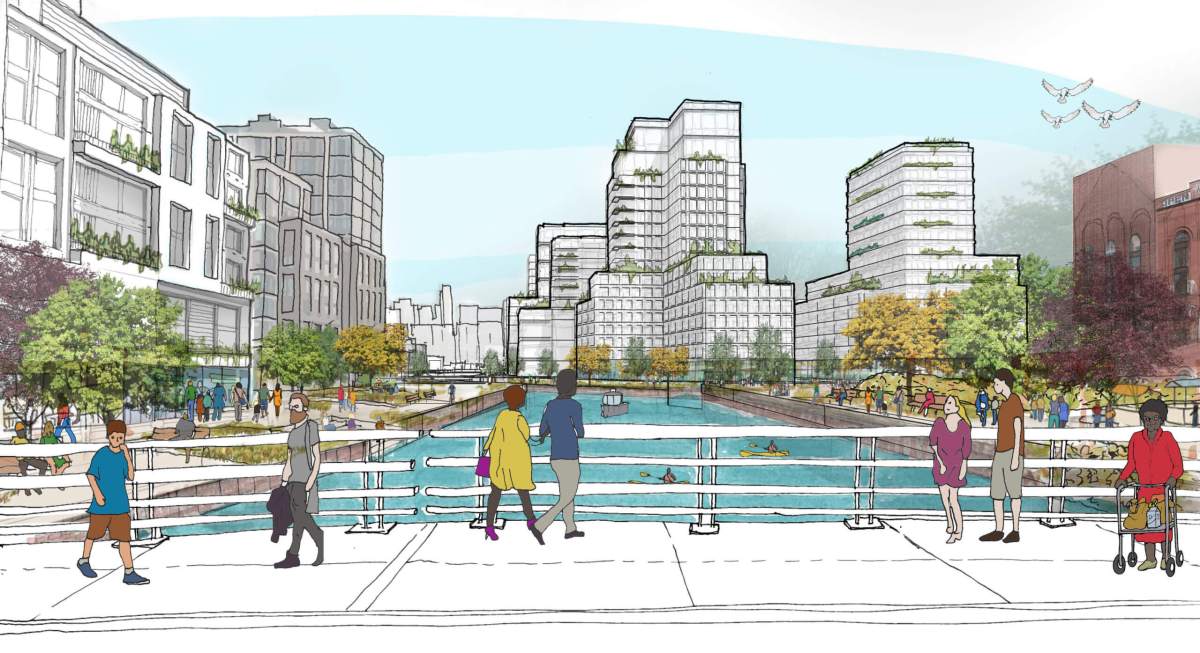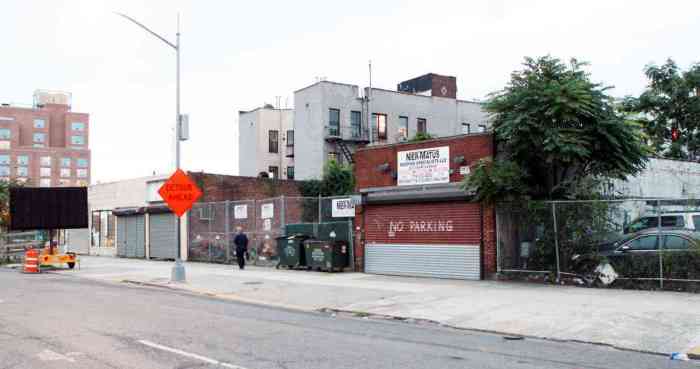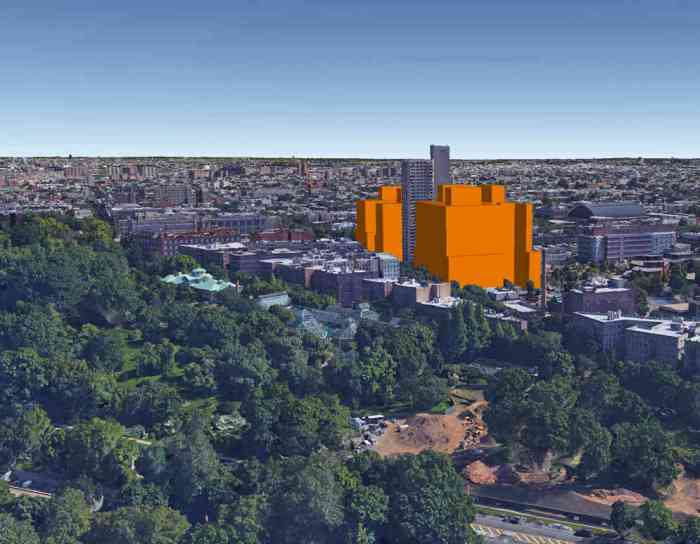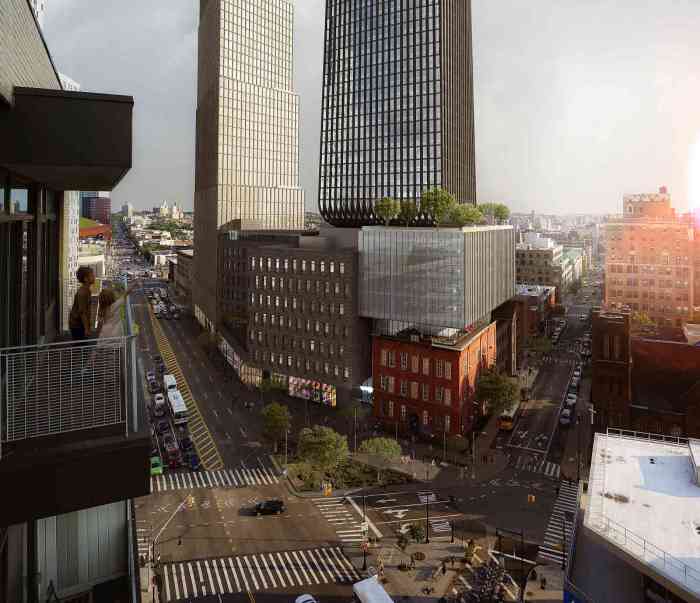The start of the massive Gowanus rezoning’s lengthy public review process is still held up in court, which comes after a Brooklyn judge decided on Thursday to further study whether the city’s planned Zoom-based meetings are legal under city law.
“I’m not going to order certification ’til I figure out whether what the city is proposing to do…meets the requirements of the ‘public assembly,’” said Brooklyn Supreme Court Judge Katherine Levine at a virtual court hearing on Feb. 4. “So I have to look at the case law and figure that out.”
Lawyers for and against the Gowanus rezoning sparred in court for more than an hour about the intricacies of city and state public meeting laws, and whether Gov. Andrew Cuomo’s pandemic-related executive orders to move public meetings onto remote forums applied to the city’s Uniform Land Use Review Procedure.
The City Charter specifies that during the review process, the local community board must hold a public hearing on the proposal “at a convenient place of public assembly,” in the district or somewhere centrally-located in the borough — and a lawyer for the lawsuit’s plaintiffs argued that Cuomo’s COVID decree did not specifically cover that legal clause.
“[The governor’s executive order] is not specific enough…it has to be narrowly tailored and it doesn’t cover the ULURP law and laws pertaining to requiring a ‘place of public assembly,'” said Jason Zakai, who represents the groups opposed to the rezoning, Voice of Gowanus and Friends and Residents of Greater Gowanus.
The groups sued the city on Jan. 15 claiming the Department of City Planning was violating city law by holding its meetings for the rezoning via Zoom due to the pandemic.
The judge issued a temporary restraining order on the rezoning’s start, which was originally scheduled for Jan. 19, but partially lifted the restriction on Jan. 28 to allow for the city to release its application materials while still holding off on certification.
An attorney for the city’s Law Department on Thursday countered that the plan’s opponents were too narrowly interpreting the law, saying it doesn’t spell out that meetings have to be in-person.
“Petitioners are engaging in a linguistic exercise when they say ‘a place of public assembly must…’ and it means only one thing — that it’s a brick-and-mortar building that people get into a room,” said Christopher King. “That’s one interpretation that might be reasonable. It’s also reasonable to interpret it as a virtual meeting. Nowhere in ULURP is there any requirement that meetings be face-to-face and in-person.”
The city dumped a cadre of documents about the rezoning online the following evening on Jan. 29, but DCP has yet to publish the sought-after Environmental Impact Statement — which would reveal officials’ forecast of the potential infrastructure and environmental impacts of the neighborhood-wide land-use change.
A second aspect of the opponents’ lawsuit claimed that the agency failed to give locals proper notice about the land-use change’s start.
Since the court proceedings began, Judge Levine ruled that the officials did in fact give the notice within the required time-frame, but asked Zakai to further prove his case that a Dec. 18 DCP email to the community boards was deficient — which the opponents claim, as it only indirectly linked to the materials via the city’s Zoning Application Portal, making it hard to navigate for people that aren’t tech savvy.
Judge Levine also allowed a group supporting the rezoning named Gowanus Residents, Owners, and Workers – or GROW — to join in the hearing Thursday, arguing that locals who support the plans should also have a voice.
Their attorney noted that the courts have upheld running virtual meetings, as in-person gatherings risk spreading the virus — referencing a judge’s October order for the Brooklyn Democratic Party to still hold its full membership meeting virtually, which resulted in the now-infamous 26-hour two-part Zoom meeting.
“What the court held in that case was, no, we’re in an emergency and having a virtual hearing — which by the way the County Committee had over several days and hours and hours – having a virtual hearing is better than having no hearing at all,” said Kenneth Fisher.
Judge Levine reiterated her concerns that some more needy Gowanusaurs might lack access to the internet, and that the city should try and create additional access to fully take part in the hearings.
“Let’s say I buy what the petitioners say, that there are members of the Gowanus Houses or wherever, or some artist in like some kind of boat on the Gowanus Canal who doesn’t have internet access and really wants to be seen and watch the proceeding and know that everything is kosher, so how do we do that,” she said.
King, of the Law Department, argued that even if locals didn’t have internet access, they could avail of free Wi-Fi at LinkNYC kiosks.
While there is only one such kiosk in Gowanus — at Fourth Avenue and 15th Street — there are many more along Fifth Avenue in Park Slope, and along Court and Smith streets in Carroll Gardens and Cobble Hill, according to the LinkNYC website.
Locals have put forth other suggestions for making the hearings more accessible, but King said the city has done enough as it is.
“We’re happy to listen to suggestions about how to improve public participation, but I think our view is that we’ve done everything within reason that could be done, including phone participation,” he said. “Yeah, virtual meetings aren’t perfect, okay, neither are in-person meetings.”
Levine closed out the hearing saying she would review the case law on the city’s public assembly requirement before issuing her decision.
The court case is another headache for city leadership, which is trying to complete the six-to-eight month ULURP before the end of 2021, when both Mayor Bill de Blasio and area Councilmember Brad Lander leave office — which would leave the Gowanus rezoning’s fate to a yet-to-be-determined set of elected officials.






















